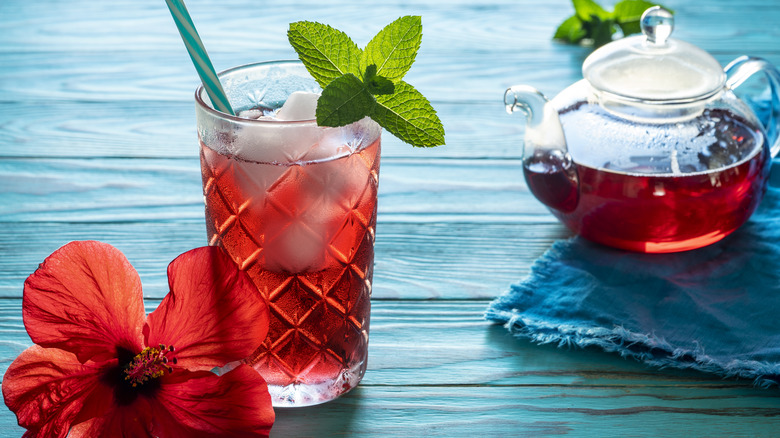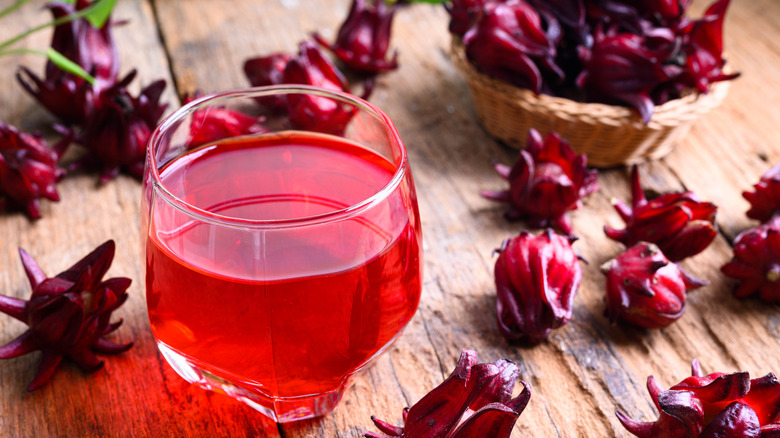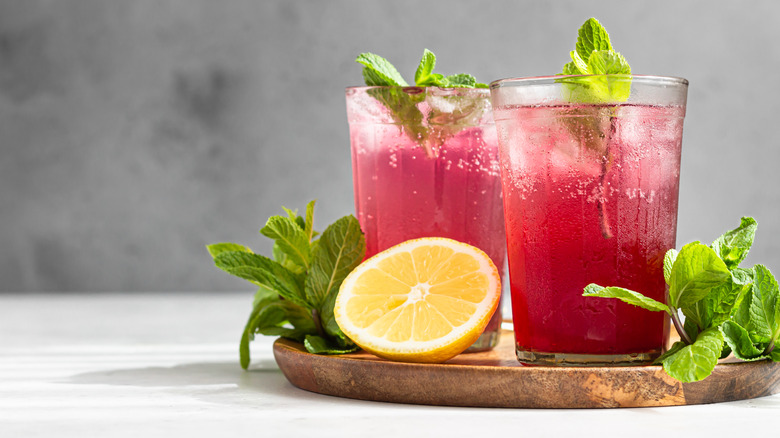The Significance Of Hibiscus Drinks Throughout African History
Known for its health benefits and easily recognized by its sultry crimson color, tart and floral hibiscus is a popular flavor for drinks. This colorful flower, thought to be native to Africa, has a rich share of history as well, particularly for the African diaspora who played a crucial role in its dissemination to the rest of the world.
A symbol of survival and strength during the grueling centuries of slavery, hibiscus has become an iconic symbol of the African roots of the Caribbean. In the nearly 300 years of the Atlantic slave trade roughly 10.5 million Africans were forcibly relocated to the Americas with nearly 40% of them being sent to the Caribbean.
Alongside this migration of people came plants and animals. Hibiscus was one such plant that farmers began to discover in the corners of their plantations. Today, hibiscus is marketed as a superfood alongside açaí and chia seeds, but that doesn't negate its important role in history.
The African history of hibiscus
Hibiscus means "plant that is consecrated to the ibis," which is the sacred bird whose head is associated with the Egyptian god of wisdom, Thoth. Talking about hibiscus is a bit of a misnomer though, because it isn't actually a single plant. Hibiscus is a genus of plants and a large one at that, consisting of roughly 300 different species. When people talk about hibiscus in the context of food they are usually referring to Hibiscus sabdariffa, more commonly known as roselle.
Hibiscus is believed to have originated in West Africa where it was the key ingredient for a wide variety of drinks including the Ghanaian sobolo, Nigerian zobo, and the Senegalese bissap. More than a refreshing drink, ancient Africans used hibiscus medicinally to treat measles, high blood pressure, and liver disease. They even used the fibrous pulp as a type of bandage for wounds. As for spirituality, hibiscus was used in rituals meant to manifest love and in divination rites.
As hibiscus traveled out of Africa it kept much of its symbolism and medicinal importance. Having a piece of home in a violent and unwelcoming new world helped African slaves survive psychologically and spiritually. By continuing their culinary traditions, they were better able to hold on to their sense of dignity and culture at a time when it was needed most.
African influence on modern hibiscus drinks
With slavery behind us and cultural appreciation on the rise, African-inspired hibiscus drinks have only become more popular. Of course, this isn't without controversy. The use of historically black cuisine stripped of its context gives some groups the impression that something unethical is happening, while others see it is a celebration of their culture regardless.
The debate rages on but that hasn't stopped the culinary world from reveling in the wholly unique flavors of this delicious African flower. Hibiscus drinks have always enjoyed a wide spread of styles, whether that's as a hot tea or a refreshing summer wine. Today, hibiscus is finding its way into everything from cocktails to sparkling water. In a nod to the merging of African and Caribbean culture, the popular Mexican drink Agua de Jamaica combines the traditional latin agua fresca with hibiscus tea.
An even more modern take, Berry Bissap is a small but growing brand of hibiscus drinks fully embracing its West African roots. The brand even sources sall of its hibiscus from Ghana. Hibiscus pulp may not be used as a bandage anymore but we haven't forgotten the medicinal benefits, cultural significance, and culinary prowess of this lush African flower.


